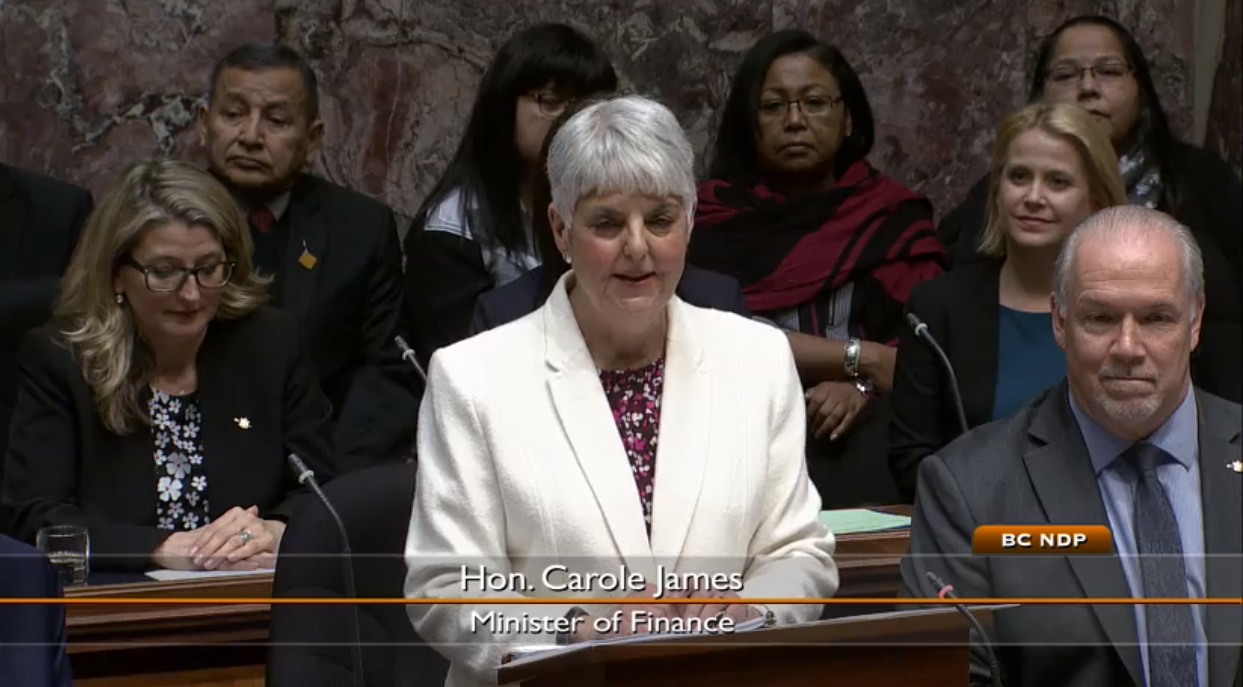A new child Opportunity Benefit, interest free student loans, a reduction in the taxes businesses pay, a revenue-sharing agreement with First Nations and investments in clean energy are highlights of the provincial budget.
The B.C. Child Opportunity Benefit, which starts in October of 2020 for children under 18 will see families get benefits of 1,600 dollars per year for one child and 2,600 dollars for two children and so on.
There will be some tax reductions, a family of four earning 60,000 dollars will have its provincial taxes reduced by up to 60 per cent.
As of today, all B.C. student loans will stop accumulating interest.
Finance Minister Carole James said the province is increasing the amount foster parents are paid for the first time since 2009 and extended families will get benefits too.
“Extended family, like grandparents and aunties and uncles, who support children and keep them out of care will finally have payments to support them and keep kids out of foster care in this province.”
The increase in support payments for the Extended Family Program was one of the recommendations from Indigenous communities and Grand Chief Ed John’s report.
Nanaimo North Cowichan MLA Doug Routley said 3 billion dollars over the next 25 years has been committed to First Nations in B.C. as well.
“We are putting our rubber to the road on reconciliation. The chiefs from the province were sitting all around the gallery with us and they are so happy because we are going to be sharing gaming revenue, we are going to be investing in housing, we are going to partnering in so many ways, I think it will empower all of us.”
There was no mention of that promised 400 dollar rental rebate for renters but the province will be providing funding to community organizations to operate rent banks that can provide short-term loans with little to no interest for low-income tenants who can’t pay their rent due to a financial crisis.
Routley said there were items in the budget for small businesses.
“Many of the things they ask for have been answered. They say that our biggest issue is we don’t have a skilled workforce, that’s what they say, so we are investing in thousands of training spaces. They’ll say that housing is too expensive for their employees, so we are taking steps to reduce that and of course they’ll say that the tax burden they face is higher than they would like, so we are reducing that by 20 per cent.”
On ferries, Routley said there are six terminals in his constituency. He said the fare freeze will continue.






